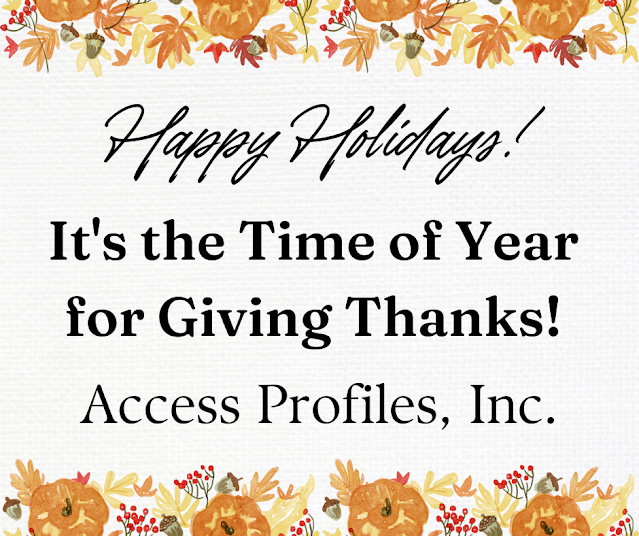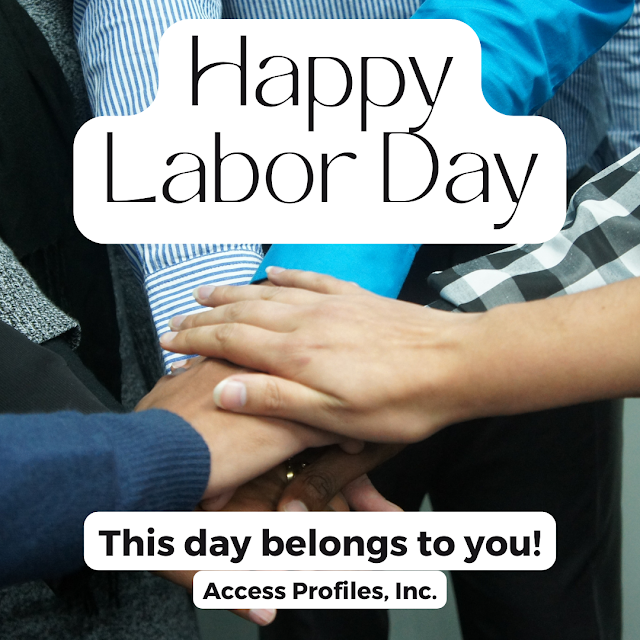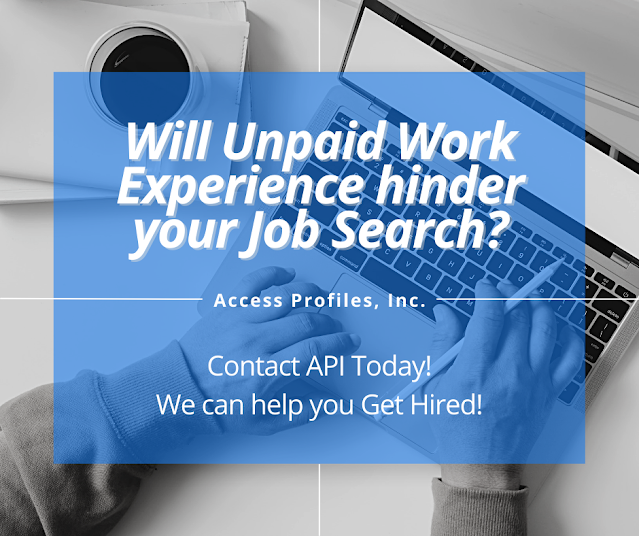This is the time of year when graduates are hitting the job market. Whether it is from high school, college, or even a great trade school, they all have one thing in common ~ they are ready for their first “Real Job”!
The question now is how and where do you begin?
The short answer is this ~ do your research, don’t forget to network, and be ready to “sell” yourself!
The key is to approach finding a job much like you did getting ready for exams. Preparation, studying, and a great mind set are what will get you through.
And it all starts with following these tips ~
Make sure your Resume is “Background Check Ready”. The majority of employers will do some type of background check before making their hiring decision. There is simply no point in applying for any job until all the information listed in your resume is accurate and contains no “red flags”.
You need to:
- Make sure your resume is “clean”
- Never list a degree, diploma, or certification you haven’t earned
- make sure all past employments are accurate
- Know in advance what your past employers / references will say about you
- Be ready to mitigate any employment “gaps” or inaccuracies
- Do a background check on yourself first
Remember, the key to any good resume is to make sure it is first and foremost a way to market You to your new employer. And starting with any kind of discrepancies is not the way to go!
Learn more in “Tips to Help you get your resume background check ready”!
Create Your Professional Online Presence and Clean Up your existing Profiles Are you on LinkedIn? This social network is a must for creating a professional persona. Create a profile that is not simply a list of your credentials. Make it interesting! Put the focus on sharing “you”, what makes you unique, and what drives you (there are a lot of great tips out there to make your LI profile shine).
Now check out your existing social profiles. Take the time to give them a good, hard look and remove anything questionable that could result in a bad impression of you.
Asking yourself these questions BEFORE you post anything online is the wise way to go.
- What do your Social Profiles say about You?
- Do they show you in a good light?
- Have you shared things you are not proud of?
- Do they highlight the best things about you?
- Would You be Proud to Share Them?
Remember, what you post online can impact your job search. Learn more in “Discover how your Social Media Posts can keep you from getting the Job You Want”.
Bottom line, employers are bound to look! So make sure your social profiles are up to par!
Focus Your Job search - but not too narrowly! Only applying for jobs that fit you exactly, or throwing your net too wide, is not the way to get the job you want.
Instead, create a job search strategy that keeps in mind your goals, skills, and interests. No one job may fit them all. But, as long as you are focused on finding something where you can explore your interests and where you can contribute, you will be adding something valuable to your professional work experience.
Use Your Connections You may not think you have any, but think again. Did you have any summer jobs or internships? A former supervisor might be the perfect person to help you meet someone who can help you find a job.
How about reaching out to your family or friends? Let them know you are looking to start your career and they may have some suggestions.
And don’t forget your university’s Alumni network. Many universities forge strong connections among their Alumni. Join and stay active.
Use your College’s Resources Does your university have a career center? Check it out! You will find a variety of resources that will help you with your resume and job search. Many universities also host job fairs. This is a great way to check out many different companies at once.
Don’t be afraid to get out and network!
Seek out local professional associations and attend networking events. Be ready to tell people what you do (or want to do) and what you have done to get yourself ready. But don’t forget to listen first! Going in with a pitch without showing a genuine interest in others will put people off.
Research Companies Before You Apply Do your homework. Check out their company website. Make sure you understand the company “brand”, how they started, and what they do. Find them on LinkedIn and other social networks.
They will be screening you, and you need to screen them in much the same way. Any information you find will also help you prepare for your interview. Learning all you can about your target companies just makes sense.
Pay Attention to Application “Rules” Many jobs you apply for will require online applications. Be sure to follow all instructions carefully ~ remember, this will often be your first impression!
But no matter what method they use to collect their applications, in all cases you need to pay close attention to neatness, spelling, clarity, and legibility. Losing out on a possible interview due to sloppiness or an incomplete application will not get you the interview you need.
Don’t Underestimate the Power of a Thank You If you are lucky enough to be called in for an interview, then you know that they are at least interested in what they have seen on your resume/application. The interview will simply be the next step in finding out if you are a good fit. This is where your company research will come in handy.
Be sure to be ready with tangible examples of problems you have solved, what you have learned, and why you want to work for them. Making sure they understand what you will bring to their company is important.
But no matter how well the interview went, it can all be erased unless you remember the Power of a Thank You!
Not only should you thank them in person on the day of the interview, you need to follow up with a thank you email to anyone you met with throughout the day.
Be sure to express your thanks to them for taking the time to meet with you. It is also a good idea to personalize each thank you with any specifics you may have discussed during your interview. Making them more “personal” can go a long way in making a good impression.
Consider Continuing Your Education (Grad School), Taking an Internship, or Volunteering. If you are still not getting anywhere in finding a job, then you may have to consider some alternatives.
If you believe grad school is in your future, then take a look at some programs that will further your professional skills. In fact, it is sometimes easier to simply continue on and complete the education you need before getting a job. You are still comfortable with studying, exams, and all the other things that go along with going to school.
And if you haven’t already had an internship, it is not too late to find one. This can be a great way to increase your “real world” skills and extend your connections.
Do You Volunteer? Now can be the perfect time to start. Not only will it make you more invested in your community, it is a valuable addition to any resume.
Be Patient Don’t get discouraged. It will take time to land your first job, or even to get an interview. This is not a reflection on you. Just stay focused on being positive.
Most new grads and job seekers will apply for dozens of jobs and many will never even receive a response. Remember, everyone goes through it and we all had to start somewhere.
Check out “Attention New Grads ~ What you need to do to land your first job!” to find information on how to best accomplish your goals!
It takes work to find a good job and how you approach that search can make all the difference. Doing everything you can before you even apply to prepare yourself is key!
Authored by
Check out our site for more information on Background Checks and your Job Search!
Find out more About Us too!



.png)




































